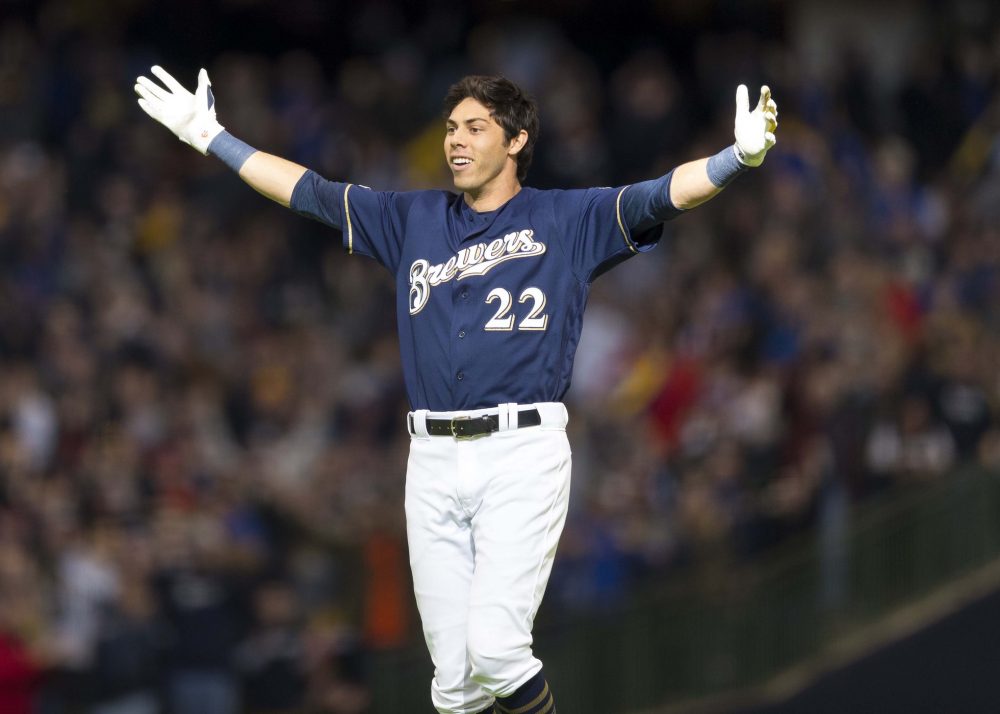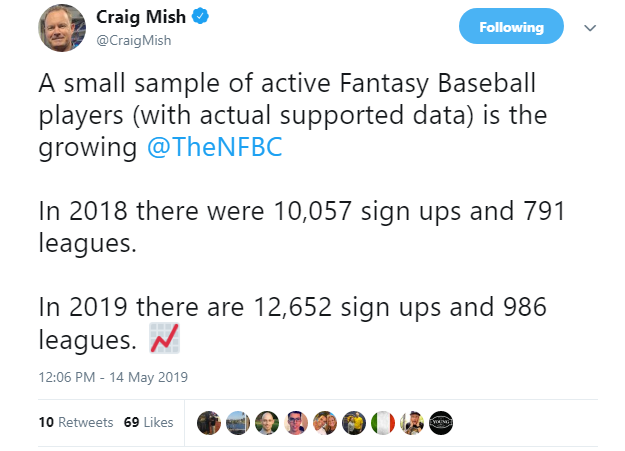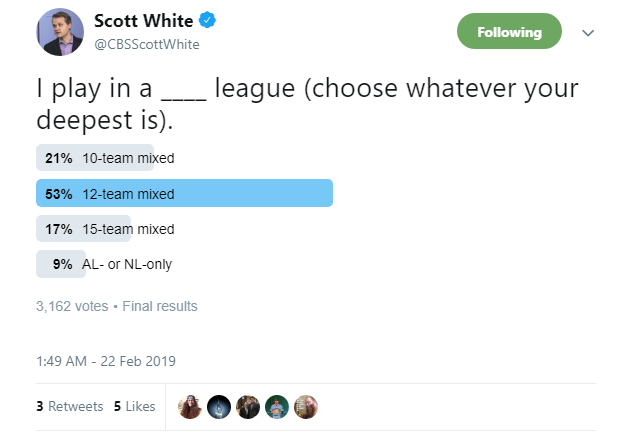
At Fantasy Guru last week, Ray Flowers wrote a column called “What is Wrong With Fantasy Baseball?” You can find it here. The column received a fair amount of negative feedback online because, well, online. However, some of the pushback against Flowers’ article offered legitimate criticisms of the points in the article and the premise itself.
The most obvious pushback against the piece is fantasy baseball isn’t dying at all.

The National Fantasy Baseball Championship (NFBC) is only one slice of what is a very large pie (estimates of how many people play fantasy baseball range anywhere from eight to 15 million people, depending on which source you’re using and what is categorized as fantasy baseball). If someone plays in a daily league (DFS) once or twice a season, does this count? Regardless of what you include in your accounting, the fantasy version of the game is as robust as ever and growing.
It is impossible to deny the game is different than it was a generation ago. It is quite possible the original version of the fantasy game – the 12-team AL- and NL-only version – is approaching death’s door. In retrospect, it is weird that many of us started playing a version of the game that deliberately excluded half of major league baseball’s player pool. The idea behind the original game was it forced players to appreciate the backups and middle relievers more casual fans don’t even notice. The reality is it created a weird type of fanatic who was extremely knowledgeable about one league and practically ignored the other.
I attended a Phillies/Brewers game last week with a member of my 32-year-old AL-only home league. This friend is one of two people in our 12-member league who has been around longer than I have (I joined in 1996). He’s always only been in just one fantasy league, has never been in a mixed league and is extremely resistant to change. He has forgotten more about baseball than many of us know, yet beyond the obvious superstars in the game like Bryce Harper and Christian Yelich, he didn’t know much about the players on the field. He thinks players should bunt and/or hit the ball the other way against the shift far more often than they do.
My league has gone through a few cycles of membership, with one or two of those cycles resulting in a moderate amount of turnover that made us worry about the league’s survival and level of play. The first wave of these changes came in the late 1990s/early 2000s, when many of the original league members – who started playing at Brown University in the late 1980s – got more serious jobs or promotions, got married, had children, etc. There was some trial and error with their replacements but eventually our league once again put together an excellent group of players.
Over the last few years, we have once again had turnover and I’ve noticed it is more difficult to fill the open slots than it was 10-15 years ago. The people who have come into the league are certainly knowledgeable about baseball, but they don’t have the same grasp on our version of the fantasy game as much as the last round of players we brought into the league did. There are a few reasons for this, but the biggest reason is nearly all of these newcomers have played fantasy baseball prior to joining our league and it’s nothing like our league’s rickety, ancient version of the game.
When it comes to deep leagues, it turns out I’m in the minority.

This is an admittedly unscientific poll but Scott White writes about fantasy sports for an organization with a large audience, so I figured he’d have a fair amount of Twitter followers who play in deeper leagues. However, the responses tell a different story. Seventy-four percent of the 3,162 people who answered White’s poll don’t play in anything deeper than a 12-team mixed league. Ten and 12-team leagues are far more popular than deep mixed or mono leagues.
I’ve played in AL- and NL-only long enough to see the flaws and why this format isn’t appealing to many. It is fun to have a free agent pool where there are always good or even usable replacements available. It isn’t fun to look at a free agent hitter pool every week consisting of half a dozen catchers and seven non-catcher position players. Some of the fun in the seasonal game is rooting for “your” players week in and week out but there is also something to be said for the fun of roster churn and constantly looking for ways to improve your team. Drafting a team and then mostly sitting on your hands for six months isn’t exciting.
There is another reason why I suspect shallow leagues are popular. It’s because they’re “easier” and don’t require the same level of preparation and expertise deeper leagues do. I used to view this as a negative (OK, I was a jerk and a snob about this), but I’ve changed my mind. There are several activities in life I enjoy where I don’t feel the need to be the best or be an “expert.” I like to play tennis and I’m competitive but if I don’t win, that’s fine. I derive enjoyment out of the game itself and it doesn’t matter to me if I’m the best (whatever that means anyway).
Whenever I run into someone who plays fantasy baseball, whether it’s at work or a social event, the type of players I run into fit the mold of the more casual player. They like baseball and enjoy fantasy baseball as well. They’re in one league and don’t feel compelled to play in 10 different leagues with 10 different sets of rules and aren’t interested in the minor leagues. They play to have fun with their friends and managing a team comprised of players who are mostly stars is fun.
Does fantasy baseball have the same problem that “real” baseball has in terms of an aging fanbase? My assumption is yes, but as is the case with the real version of the game, this is a problem that will have less of an impact in the short-term and more in the long-term. Children not playing baseball and fewer adults attending baseball games doesn’t have much of an impact on fantasy baseball today but will matter in 20-30 years. It isn’t doing anything to limit interest in the fantasy game now.
I wouldn’t be surprised to see a version of fantasy baseball in 2050 that looks nothing like the seasonal version of fantasy baseball in 2019. The lament about fantasy baseball dying is less about fantasy baseball going away and more about it becoming something different or new entirely. This is something that should be embraced, not discouraged. It might not be good for the business of writing or talking about fantasy baseball, but the NFBC data presented earlier makes me believe there will always be a portion of the population that wants to play in high stakes leagues that require a certain level of knowledge to be successful.
Thank you for reading
This is a free article. If you enjoyed it, consider subscribing to Baseball Prospectus. Subscriptions support ongoing public baseball research and analysis in an increasingly proprietary environment.
Subscribe now